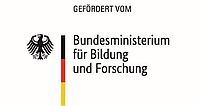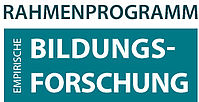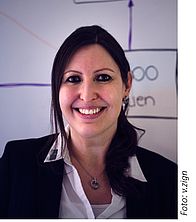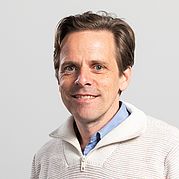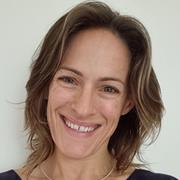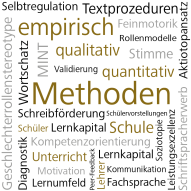GRUNDIDEE
Zwei Projektgruppen werden über ein Jahr (Oktober 2024 bis Oktober 2025) von jeweils einer Expertin bzw. einem Experten bei der Erstellung einer gemeinsamen englischsprachigen Publikation begleitet. Die Gruppen durchlaufen dabei über das Jahr verteilt jeweils fünf Module, die den Schreib- und Publikationsprozess unterstützen.
Bei Fragen zum Projekt WRITE können Sie sich gerne an Nina Wunder (nina.wunder@ur.de) wenden.
MODULE
Modul 1: Theorie
Einführung der Nachwuchswissenschaftlerinnen und -wissenschaftler u.a. in die dem Forschungsprojekt zugrundeliegende Theorie, ev. Hintergrundinformationen zur Entstehung des Datensatzes, Literaturrecherche und Hypothesenbildung.
Modul 2: Methodik und Datenanalyse
Workshop zu der zugrundeliegenden Methodik und den Analyseverfahren des jeweiligen Projekts.
Modul 3: Wissenschaftliches Schreiben
Semesterbegleitendes Seminar zu wissenschaftlichem Schreiben (in englischer Sprache), das auch die Expertinnen und Experten durch digitale Feedback-Sessions in ca. zweimonatigem Rhythmus begleiten.
Modul 4: Wissenschaftskommunikation
Einführung und Anleitung zur Aufbereitung der Ergebnisse für den Transfer in die Wissenschaft sowie die Bildungspraxis.
Modul 5: Präsentation der Ergebnisse
Öffentlicher Vortrag zu den Ergebnissen der Projekte im Rahmen eines Praxistages.
ABGESCHLOSSENE PROJEKTE
WRITE - PROJECT "RISK COMMUNICATION"
| Prof. Dr. Karin Binder Professorin für Mathematikdidaktik an der LMU München
|
Project:
"How to communicate risks in medicine and law?"
Risks in the field of medicine or law can be communicated in different ways. Instead of communicating “The risk of being infected is 80%” also a qualitative expression like “It is not absolutely certain but very likely that you are infected” would be possible. For example, in order not to overwhelm patients in medical contexts, communication is sometimes recommended to be qualitative rather than quantitative. But do all people imagine the same percentages under these qualitative descriptions? With the help of several items, we examined the extent to which the quantitative assessments of medical and law students vary when qualitative statements are to be evaluated.
In this WRITE project we will use generalized linear mixed models to examine whether characteristics such as risk literacy, semester, or gender led to higher or lower estimates of risk.
The results of our investigation may provide important insights into how risk communication should be designed.
Theory Workshop: 16 October 2023 (online)
Data Analysis Workshop: 30 October 2023 (live)
WRITE - PROJECt "INTEGRATING Digital and Physical Learning Spaces"
| Prof. Dr. Jo Tondeur Teacher Education Vrije Universiteit Brussel, Belgium
| Prof. Dr. Sarah Howard Digital Technologies in Education University of Wollongong, Australia
|
Project:
"Future Learning Environment: Integrating Digital and Physical Learning Spaces"
It is recognised that the learning environment can impact teaching and learning processes (Barrett, Treves, Shmis, & Ambasz, 2019). Given the inherent nature of the learning environment as an active contributor to the educational practice, it therefore gained the label of ‘third teacher’ (see e.g., Yufiarti, Erik, Fidesrinur, Rosalinda, & Garzia, 2022). Despite the growing interest among teachers, school leaders, architects, and policymakers, relatively little is known about the learning environment. At the same time, the main stakeholders seem to have found common ground in exploring the potential educational value of the learning environment (Tondeur, Herman, De Buck, & Triquet, 2017). Moreover, the great online transition (GOT) - the global shift to online remote teaching because of the global COVID-19 pandemic - catalyzed a significant shift to the digital learning environment in all educational levels (Howard, Tondeur, Hutchison, Scherer, & Siddiq, 2022).
Given these changes, it is time to explore the interplay between physical learning environments and the potential of digital learning environments adopted during the GOT (cf. Nortvig, Petersen, Helsinghof, & Brænder, 2020). To do this, we propose employing a connected ecology approach to explore the learning environment (cf. Herman & Tondeur, 2021). This approach is informed by place, pedagogy, and design, exploring the richness of learning environments in the light of merging the potential of digital and physical learning spaces. This supports a holistic view of the learning environment and one that can include a range of contexts, actors and activities.
In this WRITE project, we suggest a systematic review method to locate, critically evaluate, and synthesise qualitative studies about the integration of online and physical learning environments The review team will use a meta-aggregative approach, developed by the Joanna Briggs Institute (http://joannabriggs.org), which comprises an aggregative approach of extracting and synthesising qualitative data: 1) emphasise the complexity of interpretive understandings of phenomena, 2) ensure that the approach to synthesis is transparent; and 3) the synthesised statements should be practical and usable. This qualitative approach should provide insights into how and why, in this case, online and physical learning environments can be successfully merged. The increase in volume of available qualitative research in the field of pre-service training enables the aggregation of findings, allowing us to synthesise the knowledge gathered from individual studies.
No prior knowledge is expected. Everyone with a special interest in online and/or physical learning environments is most welcome. Also welcome are researchers interested in conducting a synthesis of qualitative data.
Theory Workshop: 28 November 2023 (online)
Data Analysis Workshop: 18 Dezember 2023 (live)
WRITE - PROJECT "ADAPTIVE TESTING IN MATHEMATICS"
Prof. Dr. Georg Bruckmaier
Professor für Mathematikdidaktik
an der Pädagogischen Hochschule FHNW
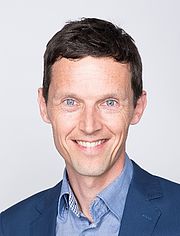
Project:
"Adaptive Testing in Mathematics"
Due to the relevance of mathematics, the development of pupils' basic mathematical skills ("mathematical literacy") is undoubtedly a central subject-related task of teaching at secondary schools. However, as performance heterogeneity increases, the corresponding support in the classroom reaches certain limits. Digital tools offer the opportunity to provide computer-based support for this challenging task by allowing students and/or teachers to select suitable (maths) tasks for learning and performance and automatically providing feedback on the current level of performance.
A few years ago, four Swiss cantons began building a comprehensive platform called "Mindsteps" (https://www.mindsteps.ch/), on which thousands of maths tasks are available for pupils and teachers. The pool of tasks is constantly being expanded so that the tasks can now be used for numerous subjects and year groups at primary and secondary level and cover the entire curriculum in terms of content.
The students' digital work allows for exciting analyses of different questions in the area of mathematics. In this WRITE project, we will analyse the extensive data set and answer selected questions.
Theory Workshop: 6 December 2024 (online)
Data Analysis Workshop: TBA (live)
WRITE - PROJECT "EXPLORING MEASUREMENT INVARIANCE"
Prof. Dr. David Goretzko
Assistant Professor, Methodology and Statistics
Utrecht University, Netherlands
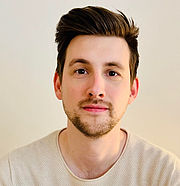
Project:
"It's tree time - Exploring measurement invariance with model-based recursive partitioning"
When comparing latent variable means across groups or measurement occasions, equivalent measurements are considered a prerequisit. So-called measurement invariance (MI) needs to be established to be able to meaningfully interpret latent mean differences. Currently, MI is often not properly tested (e.g., Maassen et al., 2023) and common approaches to do so, such as multi-group confirmatory factor analysis (MG-CFA), require the researcher to fully specify a measurement model as well as the groups for which MI may be violated. Accordingly, MG-CFA cannot be used in early stages of scale development, nor to explore several covariates that define groups that potentially differ with regard to their measurement models.
To address these shortcomings, model-based recursive partitioning (MOB, Zeileis, et al., 2008) can be combined with latent variable modeling (and/or network psychometrics). Based on this idea, exploratory factor analysis trees (EFA trees, Sterner & Goretzko, 2023) were developed as a data-driven method to identify sub-populations that differ regarding their measurement models. EFA trees can be seen as a special case of the broader structural equation modeling trees (Brandmaier et al, 2013) exploiting the full exploratory potential of both EFA and MOB. When measurement models have already been established, a combination of MOB and confirmatory factor analysis (CFA trees) is also possible to detect groups that violate MI.
In this WRITE project, we will explore the full potential of EFA and CFA trees for MI analyses in the educational sciences and develop guidelines on how to make use of these newly developed methods when designing large-scale assessments and educational panel studies.
Theory Workshop: 15 November 2024 (online)
Data Analysis Workshop: 29 November 2024 (live)
ERGEBNISSE
Ergebnisse der Projektgruppen aus dem 1. Jahr
WRITE - PROJECT "RISK COMMUNICATION"
Das Team um Expertin Prof. Dr. Karin Binder steht kurz vor der Einreichung ihres Artikels "Quantity before quality? - Why qualitative statements in risk communication do not provide a solution" in der Zeitschrift Health Communication.
WRITE - PROJECT "INTEGRATING DIGITAL AND PHYSICAL LEARNING SPACES"
Das Team um die Expert:innen Prof. Dr. Sarah Howard und Prof. Dr. Jo Tondeur haben ihren Artikel mit dem Titel "The AIMED model: Creating opportunities for AI in Higher Education" in der Zeitschrift The Internet and Higher Education eingereicht. Eine Preprint-Version kann hier eingesehen werden.
Ergebnisse der Projektgruppen aus dem 2. Jahr
WRITE - PROJECT "EXPLORING MEASUREMENT INVARIANCE"
Das Team um Experten Prof. Dr. David Goretzko exploriert aktuell verschiedene Auswertungsverfahren wie EFA-Trees und Mixture-Multigroup-Analysen am PISA-Datensatz. Dabei liegt besonderes Augenmerk auf der Auseinandersetzung mit Herausforderungen wie fehlenden Werten, Softwarekompatbilität u.A. Im Dezember 2024 nahm die Gruppe am Methodenworkshop zu Messinvarianz in der latenten Modellierung teil.
WRITE - PROJECT "ADAPTIVE TESTING IN MATHEMATICS"
Das Team um Experten Prof. Dr. Georg Bruckmaier arbeitet aktuell mit dem Codebook der Schweizer Lernplattform "Mindsteps" (mindsteps.ch), das die Grundlage des geplanten Artikels darstellt. Im Januar 2025 nahm die Gruppe am Methodenworkshop zu quantitativen Forschungsmethoden teil.



